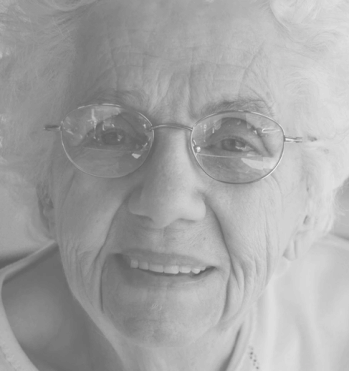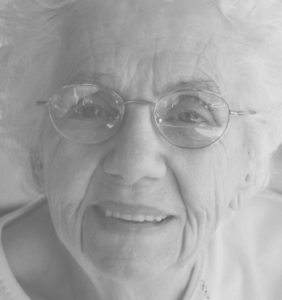Community Story: Perham
Rural Health Use Case Story: Perham

Problem Statement: Elderly widower lacks transportation, financial literacy, and social support. Needs assistance caring for her large home.
Main Character: “Gladys,” 68-year-old woman
Circumstances: Lives alone in large home on Dead Lake, 20-30 miles from Perham. Husband has recently passed.
Supporting Characters: Adult children, nurse, The Connection staff, grief support group.
Story: Gladys is a recent widower. Several years ago, she and her husband had retired to their spacious vacation home on Dead Lake, 20 miles from Perham. Gladys relied on her husband to manage their finances, maintain their home, and provide transportation. Now, with the head of the household gone, she has begun to struggle with the upkeep of the house and getting where she needs to go. She is still coming to terms with the loss of her husband, and the grief, obligations, and isolation are at times overwhelming. Their three adult children live more than 50 miles away and are unable to provide timely, consistent help.
Last week, Gladys missed a regular appointment at the clinic, prompting a concerned phone call from the nurse. After initially dismissing the nurse’s concern, Gladys quietly admitted that she was unable to get out of her long driveway because of the recent heavy snowfall, and that she wasn’t comfortable driving when the roads weren’t clear. She was also falling behind on utility bills and worried that her clinic visit would result in charges she couldn’t pay. She feels uncomfortable asking for assistance. The nurse is unaware of other resources that could help. She could only recommend that Gladys contact the utility company and her insurance provider, and offered to reschedule the missed appointment for the following week. Gladys felt apprehensive but agreed to it, and hung up the phone.
Future Alternative: The nurse refers Gladys to The Connection’s community resource navigator, who gathers information about Gladys’ variety of needs. The navigator then connects her with options for reliable transportation as well as services for snow removal, lawn care, and household maintenance. She gives Gladys information about community education classes around managing finances and estate planning. She also sends a calendar of events being held at the local senior center, community center, and churches. Gladys starts attending a grief support group and socializing more regularly at the senior center. She and her adult children begin working with a local agency that specializes in downsizing to prepare for an eventual move to a smaller home in town. This will bring Gladys closer to the community and ease the burden of maintaining a large house. She keeps the Connection’s phone number posted on her refrigerator and no longer feels like a bother when she needs to ask for help. Gladys is relieved and feels more in charge of her life again.
 Problem Statement: Elderly widower lacks transportation, financial literacy, and social support. Needs assistance caring for her large home.
Problem Statement: Elderly widower lacks transportation, financial literacy, and social support. Needs assistance caring for her large home.
Main Character: “Gladys,” 68-year-old woman
Circumstances: Lives alone in large home on Dead Lake, 20-30 miles from Perham. Husband has recently passed.
Supporting Characters: Adult children, nurse, The Connection staff, grief support group.
Story: Gladys is a recent widower. Several years ago, she and her husband had retired to their spacious vacation home on Dead Lake, 20 miles from Perham. Gladys relied on her husband to manage their finances, maintain their home, and provide transportation. Now, with the head of the household gone, she has begun to struggle with the upkeep of the house and getting where she needs to go. She is still coming to terms with the loss of her husband, and the grief, obligations, and isolation are at times overwhelming. Their three adult children live more than 50 miles away and are unable to provide timely, consistent help.
Last week, Gladys missed a regular appointment at the clinic, prompting a concerned phone call from the nurse. After initially dismissing the nurse’s concern, Gladys quietly admitted that she was unable to get out of her long driveway because of the recent heavy snowfall, and that she wasn’t comfortable driving when the roads weren’t clear. She was also falling behind on utility bills and worried that her clinic visit would result in charges she couldn’t pay. She feels uncomfortable asking for assistance. The nurse is unaware of other resources that could help. She could only recommend that Gladys contact the utility company and her insurance provider, and offered to reschedule the missed appointment for the following week. Gladys felt apprehensive but agreed to it, and hung up the phone.
Future Alternative: The nurse refers Gladys to The Connection’s community resource navigator, who gathers information about Gladys’ variety of needs. The navigator then connects her with options for reliable transportation as well as services for snow removal, lawn care, and household maintenance. She gives Gladys information about community education classes around managing finances and estate planning. She also sends a calendar of events being held at the local senior center, community center, and churches. Gladys starts attending a grief support group and socializing more regularly at the senior center. She and her adult children begin working with a local agency that specializes in downsizing to prepare for an eventual move to a smaller home in town. This will bring Gladys closer to the community and ease the burden of maintaining a large house. She keeps the Connection’s phone number posted on her refrigerator and no longer feels like a bother when she needs to ask for help. Gladys is relieved and feels more in charge of her life again.
